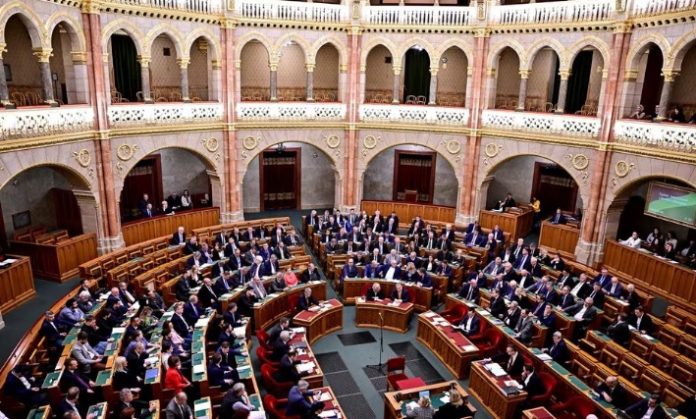The Hungarian parliament is not yet ready to ratify Sweden’s application for NATO membership.
According to MP Agnes Vadai, the issue will not be on the agenda of the upcoming parliamentary session, despite expectations and previous assurances.
It has been six months since Sweden applied to join NATO, and despite Budapest’s promises that it would not be the last to ratify Sweden’s application, it seems inevitable as Turkey, another last non-signatory, moves closer to signing.
Turkey has managed to make some progress: the parliamentary Foreign Affairs Committee is due to vote on the issue on Thursday. After that, ratification of the agreement by Ankara’s parliament can proceed quickly. According to Euractiv, President Recep Tayyip Erdogan will meet German Chancellor Olaf Scholz in Berlin, where he will give him positive news.
Meanwhile, when the Hungarian parliament meets next week in Budapest, the issue will not be on the agenda because the Hungarian parliament is not ready to ratify Sweden’s NATO bid, MP Agnes Vadai confirmed to reporters on Wednesday.
Earlier, Prime Minister Viktor Orbán said that the issue had already been discussed and considered in committees, so Hungary’s approval through parliamentary ratification was a mere formality.
The vote has been postponed several times recently. Hungarian politicians are demanding explanations for criticising the country’s democratic development, similar to many other European politicians. However, the Swedish government is confident that there will be more Hungarian assurances. Defence Minister Pål Jonson said in Brussels on Tuesday:
We have not discussed it today, but the message has always been the same: that Hungary should not be the last country to ratify the Swedish application.
Hungary has been criticised for expanding energy ties with Moscow amid the ongoing war in Ukraine, repeatedly calling for peace, demanding high standards of minority protection from Kyiv in exchange for the creation of a NATO-Ukraine Council and refusing to release EU cash to the country.
